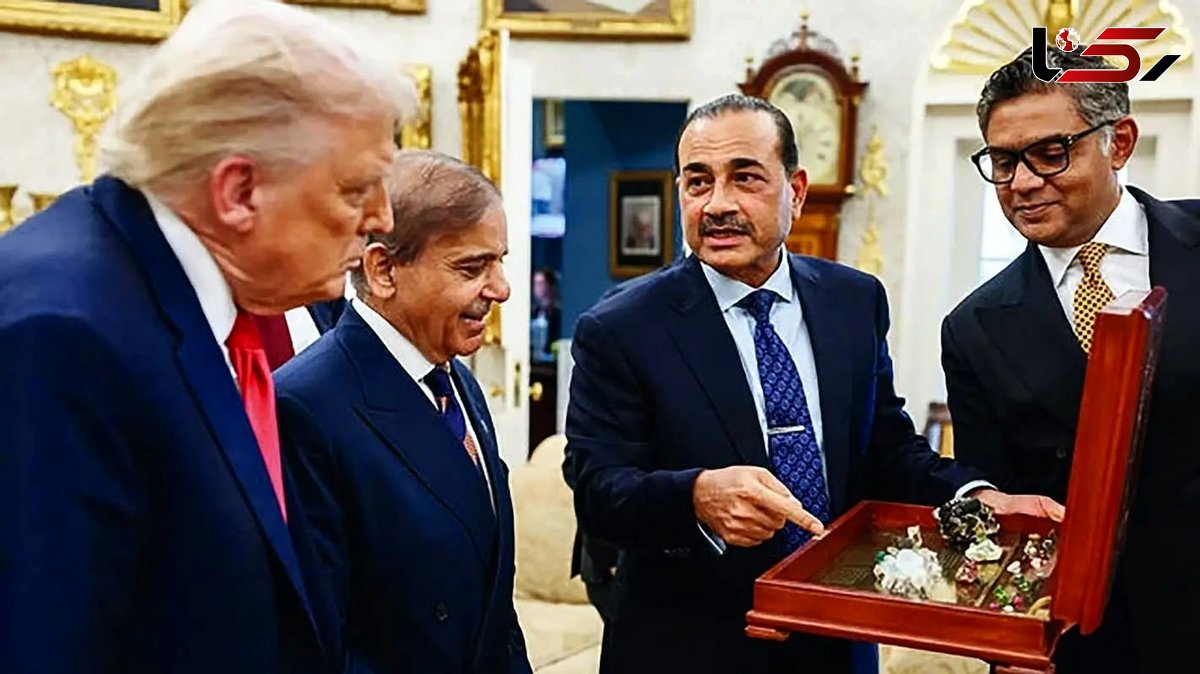U.S. Moves Closer to Iran: Regional Dynamics Shift with Investment in Pakistan’s Pasni Port
Rokna Political Desk: The United States’ recent investment in Pakistan’s Pasni Port marks a new strategic development in the region, drawing the attention of Iran. Tehran, which has long sought to strengthen Chabahar Port as a critical trade hub linking India to Central Asia, is carefully monitoring the potential implications of this U.S. presence.

Located on the southern coast of Pakistan’s Balochistan province, Pasni Port has recently witnessed a major development after General Asim Munir, Pakistan’s Army Chief, proposed a $1.2 billion investment from the United States.
According to Rokna, this move represents a significant strategic shift, potentially opening the door for increased U.S. presence in a region of strategic importance at the entrance to the Arabian Sea, near Gwadar Port—a focal point of China-Pakistan economic collaboration.
Strategic Concerns for Iran
The Pasni project is being viewed as a new factor that could reshape maritime and trade influence in South Asia, adding another dimension to competition among Washington, Beijing, New Delhi, and Tehran. Political analysts note that Pasni’s location along the Makran coast, just 160 kilometers from the Iranian border and approximately 280 kilometers from Chabahar, places it well within Tehran’s operational monitoring zone. Any potential U.S. involvement—whether through investment or logistical management—poses a strategic concern for Iran.
This development follows the U.S. revocation of Chabahar Port exemptions in September 2025, which may push Washington to explore options along Pakistan’s coastline to increase regional influence near Iran and China while exerting pressure on the joint Iran-India project at Chabahar. However, Iran’s response remains cautious as the Pasni project is still in its early stages, with threats currently potential rather than immediate.
Potential Implications
Experts note that the U.S. revocation of exemptions has made international investors more cautious about partnering with the Chabahar project. Conversely, U.S. involvement in Pasni could intensify competition along North-South trade routes. Nevertheless, Chabahar retains structural advantages as Iran’s only port connected to the domestic railway network, which in turn links to Central Asia and Russia. Accelerating the Chabahar–Zahedan railway project and offering investment guarantees to Asian partners could help preserve Iran’s strategic position.
From the perspective of Iran-Pakistan relations, the project could affect mutual trust, as Tehran is aware that Islamabad seeks to balance its ties with China, the United States, and Gulf countries. Analysts caution that if Pasni is converted into a U.S. military or intelligence base, it could negatively impact bilateral relations. Iran prioritizes preventing the militarization of the Makran coast, viewing the region primarily as an economic corridor rather than a theater for great power competition. If Pasni remains strictly a logistical and commercial hub, Tehran is unlikely to respond aggressively.
Framework for Iran’s Response
Iran’s potential response to any U.S. presence at Pasni is expected to focus on three main areas:
-
Strengthening Chabahar Port through accelerated railway connectivity and attracting non-Western Asian partners.
-
Engaging in strategic dialogue with Pakistan to ensure Pasni does not evolve into a military facility.
-
Diversifying trade partnerships to mitigate U.S. sanctions and economic pressure.
Iran’s goal, analysts emphasize, is not confrontation but risk management and maintaining its geo-economic leverage along the Makran coast. The Pasni project serves as an early warning requiring diplomatic, economic, and structural measures.
Furthermore, the development impacts Chinese interests as well, potentially heightening U.S.-China competition within Pakistan and positioning Islamabad as a key contact point between the two major powers. Analysts predict these dynamics could lead to greater Iran-China cooperation across economic, security, and regional transport initiatives.
A former Iranian diplomat and Pakistan expert noted that foreign investment, including from the U.S., benefits Islamabad by improving infrastructure and expanding transport networks, particularly in resource-rich Balochistan, which remains underdeveloped. Economic growth in the region could also reduce armed activity and separatist tendencies, reinforcing stability for both Iran and Pakistan.
The diplomat concluded that, despite regional rivalries, Tehran and Islamabad maintain a foundation of mutual security understanding. Both parties recognize that there is no strategic benefit in hostile actions, and therefore, the Pasni project currently does not constitute a major threat to Iran.
Send Comments